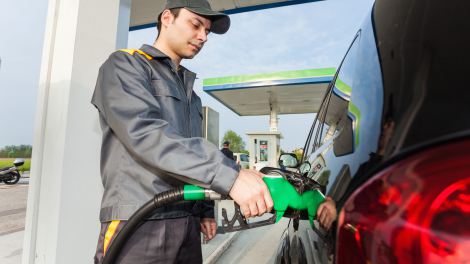Also discussed here: How the Carbon Tax Works (B.C. Ministry of Finance)
Today we review discussions about why and how a carbon tax was implemented in Canada’s most western province which has resulted in its greenhouse gas emissions being 20% lower than the rest of the country – and to almost everyone’s surprise, a public that demands that it continues. A key part of the approach is the return of revenue generated either by direct payments to those on low or zero income or by tax deductions to the middle class- a return of $500 million more each year than what was taxed for the province. Those who have adapted to the higher prices benefit the most in terms of money returned. By 2020, it is estimated that the emissions avoided are equivalent to those from nearly 800,000 cars each year. By comparison the reductions credited to technological approaches such as electric light rail transit are puny- example in the city of Ottawa that a 43 km LRT system proposed in 2008 would have taken only 2, 400 cars off the road each year (and cost taxpayers nearly a billion dollars). Such a reduction in CO2 also has significant benefits in terms of lower health costs from the reduction of other toxic pollutants emitted by cars.

Key Quotes:
“The B.C. carbon tax is built on a simple tenet of human behavior: When the price of something goes up, people will consume less of it. It actually applies to not just gasoline, but to all sources of atmospheric carbon, including natural gas and propane, and is based on how much carbon they emit.”
“British Columbia’s per capita greenhouse gas emissions are now nearly 20 percent below the rest of Canada’s. This put the province “within spitting distance” of its goal to reduce emissions 6 percent below 2007 levels by 2012 a year ahead of schedule,”
“the carbon tax alone could cause a reduction in B.C.’s emissions in 2020 by up to three million tonnes of CO2 equivalent annually. This is roughly the equivalent to the greenhouse gas emissions created by 787,000 cars per year”
“While the levy is the highest of its kind in the world, the regional economy has still continued to grow on pace with, and in the last couple of years slightly faster than, the rest of the country.”
“the money collected goes right back to the taxpayers in the form of lowered income taxes or checks… If you earn less than $29,300 annually, and wouldn’t benefit from a tax credit, you get a check four times a year…totaling $105 a year”
“People in the next two tax brackets, earning up to $111,300 a year, receive a rebate on their income taxes. As a result, middle class families, which make up about 60 percent of the population, enjoy the lowest income taxes in the country”
“Since it was first introduced in 2008, the carbon tax has returned $500 million more to taxpayers in tax reductions than it has raised in revenue.”
“The most efficient way to address greenhouse gases is to do what any economist will tell you..Put a price on them.”
“The leadership of one Canadian province, and now western American states, is sending the message that if national governments won’t commit to building a sustainable future, smaller governments will take matters into their own hands.”









No comments:
Post a Comment